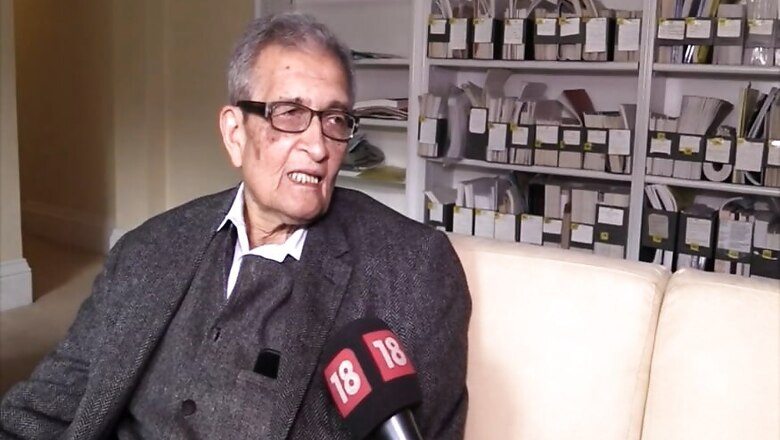
views
New Delhi: After two former RBI Governors Y V Reddy and Bimal Jalan, Nobel Laureate Amartya Sen on Tuesday raised questions on Reserve Bank's autonomy saying now a days the central bank does not decide anything and all decisions are taken by Prime Minister Narendra Modi.
Highly critical of the demonetisation, Sen opined that ithas failed to eliminate black money though Modi would continue to get the 'benefit of doubt'.
"People think Prime Minister is doing something to eliminate black momey... Modi will continue to get benefit of doubt... The idea that rich is suffering is appealing to poor people," Sen told India Today TV in an interview.
On RBI's decision to ban exchange of scrapped notes after December 30, he said, "I don't think this is RBI's decision. This must be Prime Minister's ...I don't think RBI decides anything at this time."
Modi in his November 8 address to the nation had said those who could not deposit old notes by December 30 could "go to specified offices of the Reserve Bank of India up to March 31, 2017 and deposit the notes after submitting a declaration form."
Sen further said the RBI was quite independent when Raghuram Rajan was Governor. It was served by illustrious persons like I G Patel and Manmohan Singh.
Earlier, Reddy as well as Jalan had underlined the need for preserving the autonomy of RBI.
As regards the black money, Sen said it was puzzling why the government opted to eliminate tiny 6 per cent black money by demonetising 86 per cent of the currency. Several countries including USA, Japan have lots of cash.
On the government's claim of eliminating fake currency through demonetisation, he said it was never a problem.
"Fake money was never a big problem in India. Fake money problem was not something you want to hold while economy in ransom," the Nobel laureate said.
The demonetisation decision was taken by small group of people, he said, adding state governments should have been consulted as India has a federal polity.
The government in a surprise move demonetised Rs 500 and Rs 1,000 notes, which constituted 86 per cent of the currency, from midnight of November 8.


















Comments
0 comment